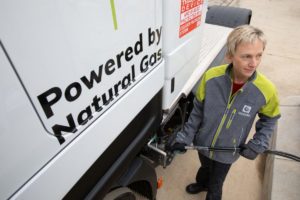
We look at some of the key points.
FUEL DUTY
Chancellor Jeremy Hunt announced that the 5 pence per litre fuel duty cut originally introduced in March 2022 is to be retained for a further 12 months.
Logistics UK said the announcement is very welcome news for logistics businesses, particularly SMEs – who make up 99% of the industry, and traditionally operate on low margins.
Declan Pang, Road Haulage Association (RHA) Director of Public Affairs & Policy, said the Budget could have gone “much further to support hauliers, coach operators and the logistics industry” but added: “We are pleased the Chancellor has listened to the RHA and continued the fuel duty freeze and maintained the 5p per litre cut brought in 12 months ago.
“This is something we’ve campaigned for to help reduce costs and control inflation.”
SKILLS
The chancellor also announced measures to encourage the over 50s back to work through Returnerships – a new offer which brings together different elements – Skills Bootcamps and Sector-Based Work Academy Programmes (SWAPs).
Returnerships will receive £63 million from government for an additional 8,000 Skills Bootcamps places during 2024-25 in England.
Skills Bootcamps are free training courses that last up to 16 weeks and the courses are available to people new to HGV driving, or those returning to driving.
People taking part can also take a bootcamp course to upgrade their licence or qualifications – for example, if they want to transport dangerous goods, petrol, or tow heavier trailers.
David Wells, Logistics UK’s Chief Executive said: “While we are also disappointed there was no reference to much-needed Apprenticeship Levy reform, it is encouraging that government is focused on supporting people into work, which will help to relieve the existing skills gaps in industry and the wider UK economy.”
INVESTMENT ZONES, CAPITAL ALLOWANCE & CLIMATE
The Chancellor also announced the creation of 12 new investment zones to “drive business investment and level up” the country in the West Midlands, Greater Manchester, the North-East, South Yorkshire, West Yorkshire, East Midlands, Teesside, and Merseyside.
There will also be at least one investment zone in Scotland, one in Wales and one in Northern Ireland.
Each English investment zone will have access to interventions worth £80m over five years, including tax reliefs and grant funding, and local government and research institutions will be able to tailor their Investment Zone plan to their local circumstances.
In addition, the Chancellor announced a new 100% first year allowance that will enable companies to write off the full cost of their investments against their corporation tax bill in the first year.
The leasing and rental sectors have historically been excluded from claiming these powerful investment allowances and passing them onto their customers in the form of lower lease or rental rates.
In announcing the new allowances, the Government publicly indicated that it will work with the BVRLA to develop a policy solution that includes this key vehicle acquisition method for the first time.
Gerry Keaney, BVRLA Chief Executive, said: “The Government has acknowledged how critical vehicle rental and leasing is in driving business investment in cleaner commercial vehicles and infrastructure.
“We look forward to working with them in the coming months to develop a powerful capital allowances regime that can drive even faster decarbonisation of road transport.”
The Chancellor said he will also extend the Climate Change Agreement scheme for two years to allow eligible businesses £60m of tax relief on energy efficiency measures.
Mike Hawes, SMMT Chief Executive, said: “We face fierce international competition so it was pleasing to hear the Chancellor directly reference industrial strategy and measures to attract investment.
“Tax breaks for capital expenditure, which the industry has long called for, extensions to climate change agreements plus action to alleviate the high cost of living and encourage more people into work are all much-needed.
“Investment zones which focus on advanced manufacturing, of which automotive is an exemplar, R&D and technology are also positive steps.”
VEHICLE EXCISE DUTY, CORPORATION TAX & HGV LEVY
The budget saw the announcement of the continued freeze on Vehicle Excise Duty (VED) for HGVs for 2023-24 – a move welcomed by the RHA.
However, a less popular development in the view of businesses was the increase in corporation tax meaning that from April 2023 onwards, the main rate will rise from 19% to 25%.
This August will also see the return of the HGV levy, although its focus will shift towards reflecting the environmental performance of the vehicle and away from its original purpose to ensure overseas operators contributed to the upkeep of the UK road infrastructure.
Keaney said: “The reintroduction of the HGV levy adds further costs and is something the BVRLA will be working with members and policymakers on to ensure a fair implementation.”
BUS SECTOR
The Confederation of Passenger Transport, said the freeze on fuel duty will provide welcome short-term relief to bus and coach operators struggling with rising costs.
Graham Vidler, CPT Chief Executive added that for the longer term, it is vital that bus and coach win their fair share of funding from the new devolved settlements to ensure the sector can continue to lead the shift to more sustainable transport.
He said: “The sector needs a stable, long-term funding settlement to encourage more people to choose bus and coach over car. This is crucial for the UK’s wealth and health.”
GREEN TRANSITION

He added: “Indeed, the announced fuel duty freeze contrasts with an absence of measures to boost uptake of zero emission vehicles, such as reducing VAT on public charging.
“We, therefore, look forward to additional policy announcements that support advanced manufacturing sectors, as the right conditions will enable the investment that drives growth across the country.”









